Introduction
In a world where environmental concerns have taken centre stage, even the most routine aspects of our lives are undergoing a sustainability makeover. Amidst this shift, a seemingly small yet highly impactful innovation has emerged – compostable floss. As we become more conscientious consumers, our choices are reflecting a growing awareness of the need to minimize our ecological footprint. In this context, the spotlight is now on sustainable alternatives in everyday items, including our oral care products.
Compostable floss stands as a remarkable example of how even the most mundane actions, like flossing, can be reimagined for the betterment of the planet. Traditional dental floss, often made from non-biodegradable materials like nylon or plastic, contributes to the accumulation of waste that takes centuries to break down. However, compostable floss offers a solution that aligns with both oral hygiene and environmental responsibility.
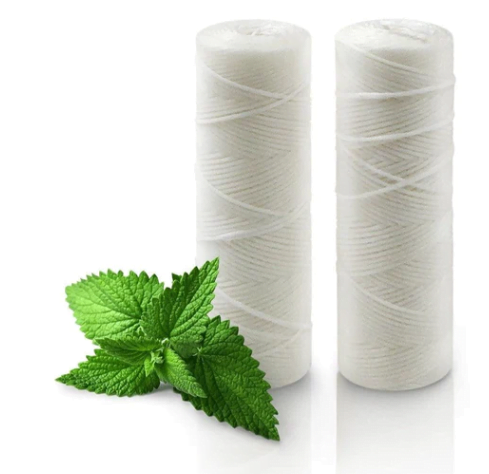
Unlike its conventional counterparts, compostable floss is crafted from biodegradable materials such as plant-based fibres, primarily corn starch or silk. This simple shift in composition makes a world of difference in terms of disposal. When disposed of in a composting environment, this floss naturally decomposes, returning to the earth without leaving a lasting mark. The impact of such a seemingly minor change extends far beyond the individual act of flossing; it embodies a commitment to sustainable living and a more harmonious coexistence with nature.
In this exploration of compostable floss, we will delve into the multifaceted benefits of this eco-friendly oral care alternative. From its composition and effectiveness in maintaining dental health to the broader implications for waste reduction and soil enrichment, we will uncover the layers that make compostable floss a compelling choice for the environmentally conscious individual. Moreover, we will offer insights into how effortlessly this shift can be incorporated into daily routines, leaving a positive impact on personal well-being and the health of our planet.
Join us on a journey that transcends the boundaries of oral care, offering a fresh perspective on sustainability and environmental stewardship. As we unravel the wonders of compostable floss, you’ll discover how a small change can make a significant difference – one floss at a time.
What is corn based plastic?
Corn-based plastic (PLA), also known as bio-based plastic or bioplastic, is a type of plastic that is derived from renewable resources, specifically from corn or corn starch. It’s considered an alternative to traditional petroleum-based plastics, which are made from non-renewable fossil fuels.
How is it Vegan?
Corn-based plastic, often referred to as PLA (polylactic acid), is a bioplastic derived from corn starch, making it a plant-based alternative to traditional petroleum-based plastics. When used in the context of compostable floss, corn-based plastic is used to create the floss itself.
Here’s how corn-based plastic makes compostable floss vegan:
1 Plant-Based Origin: Corn-based plastic, as the name suggests, is derived from corn starch, which comes from corn kernels. Since it originates from plants, it is considered a plant-based material, aligning with vegan principles that avoid animal-derived products.
2 No Animal Ingredients: Corn-based plastic does not contain any animal-derived ingredients, ensuring that it meets the criteria for being vegan-friendly.
3 Biodegradable and Compostable: Compostable floss made from corn-based plastic is designed to break down naturally in composting environments. This means that after its use, it can be disposed of in a compost bin, where it will degrade into natural components without harming the environment. This aligns with vegan values by minimizing harm to all forms of life, including animals and ecosystems.
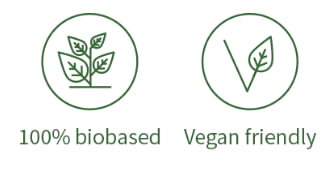
4 Ethical and Sustainable: Veganism often extends beyond diet to include lifestyle choices that aim to minimize harm to animals and the planet. By choosing compostable floss made from corn-based plastic, individuals can make an ethical and sustainable choice that reduces the environmental impact of plastic waste and supports a cruelty-free approach.
5 Avoiding Animal Testing: Corn-based plastic does not typically require animal testing for its production or use. This further supports the vegan principle of not contributing to animal exploitation.
It’s important to note that while compostable floss made from corn-based plastic is vegan-friendly, not all products labeled as “compostable” or “biodegradable” are necessarily vegan. Some materials may include additives or coatings that could be of animal origin, so it’s advisable to check product labels and descriptions to ensure that the specific product aligns with your vegan values.
How is compostable floss eco friendly?
Compostable floss is considered eco-friendly due to its composition, disposal process, and its overall impact on the environment. Here’s why compostable floss is a sustainable choice:
1 Biodegradable Materials: Compostable floss is typically made from natural, biodegradable materials such as plant-based fibres, corn starch, silk, or bamboo. These materials break down naturally over time, reducing the amount of non-biodegradable waste that accumulates in landfills and oceans.
2 Reduced Plastic Use: Traditional dental floss is often made from nylon or other synthetic plastics that can take hundreds of years to decompose. Compostable floss eliminates the need for such plastic materials, decreasing the demand for petroleum-based resources and minimizing the pollution associated with plastic production.
3 Minimal Environmental Impact: The production of compostable floss involves fewer harmful chemicals and processes compared to conventional floss made from plastics. This reduces the release of pollutants into the environment during manufacturing.
4 Biodegradation and Soil Enrichment: When disposed of properly in a composting environment, compostable floss breaks down into organic matter. This organic matter can be used as nutrient-rich compost to enrich soil, contributing to healthier plant growth and reduced dependence on chemical fertilizers.
5 Waste Reduction: By using compostable floss, you’re actively participating in waste reduction efforts. When traditional floss is discarded, it can linger in the environment for decades or more, whereas compostable floss naturally biodegrades, leaving a significantly smaller ecological footprint.
6 Promotes Sustainable Practices: Choosing compostable floss aligns with a broader commitment to sustainable living. It encourages individuals to make conscious choices that have a positive impact on the environment, fostering a culture of responsible consumption and waste management.
7 Supports Circular Economy: Compostable floss is part of the circular economy concept, where products are designed to have a life cycle that includes disposal methods that benefit the environment. This contrasts with the linear model of take-make-dispose, which is harmful to ecosystems.
8 Raises Awareness: The use of compostable floss raises awareness about the environmental issues associated with plastic waste and encourages conversations about sustainable alternatives. This can influence others to adopt more eco-friendly choices in their daily lives.
In essence, compostable floss embodies the principles of eco-friendliness by considering the entire lifecycle of the product. From its natural composition to its positive effects on waste reduction and soil health, this innovative oral care solution contributes to a healthier planet and a more sustainable future.
Composition of the floss
This compostable floss is suitable for vegans and can be processed in industrial composting facilities. Crafted from corn-based PLA bioplastic, it boasts the strength of conventional plastic while being sourced from renewable materials.
The eco-conscious dental floss refills, extending to 50 meters, are composed of corn starch and coated with candelilla wax. They come infused with a delightful hint of peppermint, enhancing the flossing experience. With a total length sufficient for 200 flossing sessions, these floss refills are a sustainable and efficient choice.
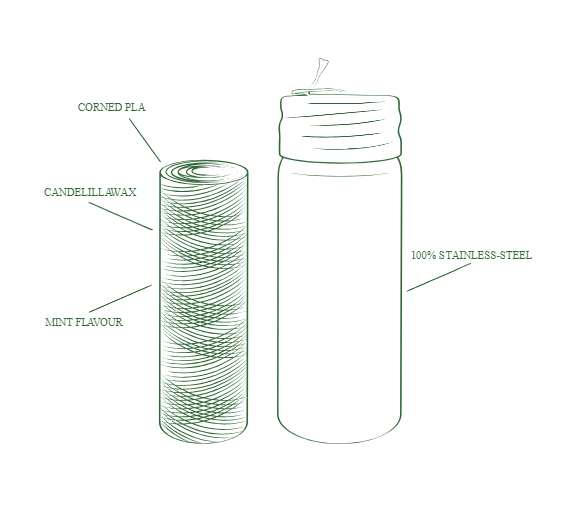
1 Stainless steel Dispenser: Ordinarily, floss dispensers are crafted from glass, which unfortunately can result in breakage and mishaps. However, by opting for this stainless-steel dispenser, you’re securing a durable solution that stands the test of time. stainless steel holds a remarkable distinction as one of the globe’s most extensively recycled materials. Impressively, a substantial 60% of fresh stainless-steel production arises from recycled sources.
2 PLA: The PLA derived from corn is suitable for industrial composting, rendering it distinct from petroleum-based plastics.
3 Candelilla Wax: The process of obtaining vegetable wax involves boiling the plant, yielding a non-gelling thickener and film-forming substance with protective attributes. This wax serves as an ideal lubricant for the floss, facilitating effortless gliding between teeth while ensuring its protective properties are maintained.
You get the product in two variations. 2 x 50mm floss or compostable floss plus stainless steel dispenser
5 reasons to shift to the eco friendly compostable floss
1 Preserving Marine Ecosystems: Compostable floss plays a significant role in protecting marine life and ecosystems. Conventional dental floss made from non-biodegradable plastics can find its way into water bodies, contributing to plastic pollution that harms marine animals and disrupts aquatic habitats. By choosing compostable floss, you’re actively reducing the risk of entanglement and ingestion by marine organisms.
2 Reducing Microplastic Pollution: Traditional floss can break down into tiny microplastic particles that are difficult to manage and can permeate various ecosystems. Compostable floss, on the other hand, disintegrates naturally without leaving behind harmful microplastics that can infiltrate the food chain and have adverse effects on wildlife and human health.
3 Supporting Sustainable Agriculture: When compostable floss breaks down in a composting environment, it contributes to the creation of nutrient-rich soil amendments. This, in turn, supports sustainable agriculture practices by reducing the need for synthetic fertilizers. The organic matter produced from compostable floss enhances soil structure, water retention, and overall soil health.
4 Enhancing Biodiversity: By embracing compostable floss, you’re contributing to a healthier ecosystem by reducing the overall impact of plastic waste on biodiversity. Plastic pollution can disrupt habitats and harm various species, while the use of compostable materials promotes a more balanced coexistence between humans and nature.
5 Empowering Consumer Responsibility: Using compostable floss empowers individuals to take an active role in making environmentally conscious choices. This decision sends a message to manufacturers and industries that there’s a demand for sustainable alternatives. By advocating for and choosing products like compostable floss, consumers play a pivotal role in shaping the market towards greener and more ethical options.
Let us embrace the possibilities that lie within our reach. Let us continue to explore, adapt, and choose products that echo our values, contributing to a legacy of care and preservation for generations to come. Compostable floss is more than a strand; it’s a thread connecting us to a more sustainable world – a world where every floss can remind us of the power we hold to make a difference.
Also look into the stainless steel box and bottles below.
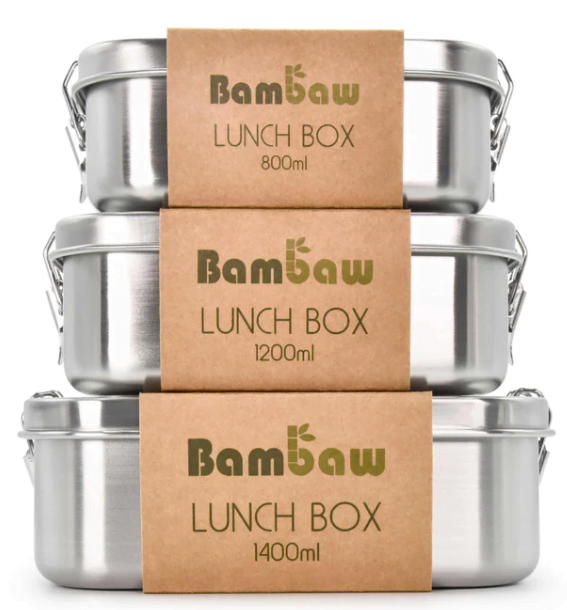
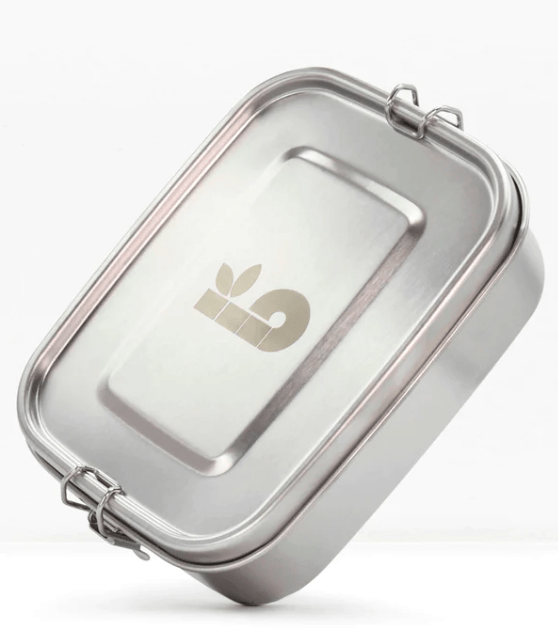
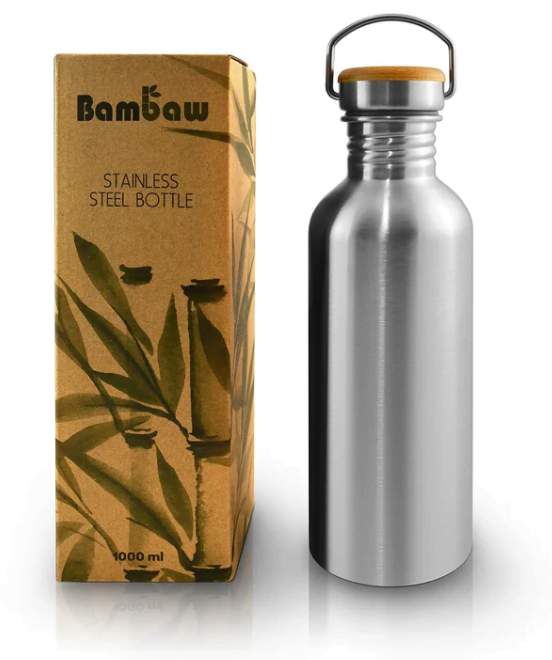
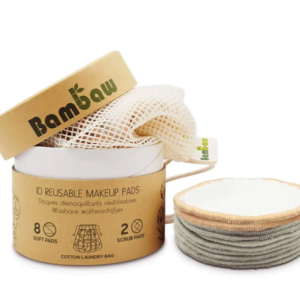
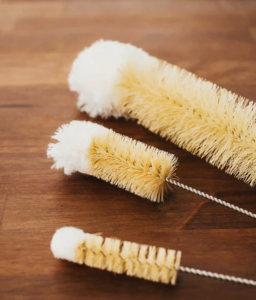
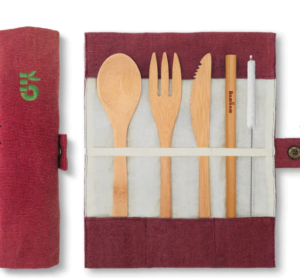
[…] If you think you this silk floss is a good add to the eco friendly list, you can also look about eco friendly compostable floss here. […]